by Billy Sweet | Feb 24, 2015 | Winter Chimney Damage
A lot of folks are thanking their lucky stars that March is finally rolling in. All over the United States there has been record-breaking winter weather; snow, sleet, hail and ice have all taken their toll on homes across America. If you use your fireplace or wood-burning stove to heat your home, then you’ve likely gotten your money’s worth this winter. Because of the drastic weather we’ve had this year, it’s more important than ever to stay on top of any chimney damage.
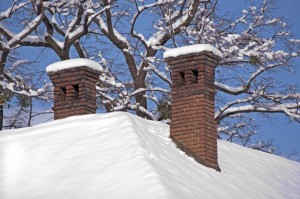
Ice Damming Can Damage Chimneys
Snow and ice build up is a serious concern for many homeowners when the weather gets cold. Ice damming is a real problem during the winter months, and this year has affected the Southeast United States more than usual. When rain and freezing rain hits a roof and freezes solid before it can drain through the gutters it can get trapped and cause what is known as an ice dam. This can cause terrible damage to your roof, but it can also damage the masonry of your chimneys. If you’ve had a lot of freezing rain, inspect your gutters and be sure to call a professional gutter cleaner if you suspect an ice dam.
Snow, Hail and Rain Inside Chimneys Can Cause Damage
If you’ve stayed diligent in your chimney repair and maintenance, you’ve likely installed a top sealing damper or a chimney cap. These easy-to-install add-ons to your chimney can prevent moisture from entering. Without them, the winter elements can leak into your chimney and cause serious problems. Not only can the moisture damage the brick and mortar of your chimneys, but also a build up of moisture can cause the fires in your fireplace or stove to not burn hot enough. Fires that aren’t burning hot enough are not only inefficient at heating your home, but can also leave behind creosote, a potentially harmful chemical trapped inside your chimney.
Prevention Is Key When Avoiding Winter Chimney Damage
With due diligence, you can keep your chimney and fireplace in top working order. As with many homeowner responsibilities, prevention is the best way to avoid costly and potentially dangerous damage to your home. Some additional steps you can take to avoid winter weather chimney damage are:
Have the inside of your chimney professionally lined to protect the inside.
Carefully inspect your roof and chimney after a big storm.
Have a professional remove ice build up from your gutters after a lot of rain or freezing rain.
Professionally clean your fireplace before and after the winter season.
A professional chimney sweeping company like Billy Sweet Chimney Sweep in the Boston, Massachusetts area can help maintain your chimney year after year. Before you light your first fire, have a certified inspector thoroughly inspect the interior and exterior of your chimney and fireplace. If your chimney sweeping company recommends masonry repairs have them completed well before you plan to use your chimney to heat your home. Not only will an inspection prevent costly damage, it will also help you burn efficient fires that will provide warmth and comfort during the worst winter weather.
by Billy Sweet | Feb 11, 2015 | Working In Boston
Working in Boston links you to the history and entrepreneurial spirit on which American Free Enterprise was built. Not only is Boston the birthplace of American freedom, throughout the years, Boston has proven to be a leader in national and international commerce. That’s why Billy Sweet Chimney Sweep is so proud we are part of the Boston business community.
Boston Harbor is the oldest in the country. John Smith discovered the port in 1614. The harbor is synonymous with the Boston Tea Party. By the 1660s Boston Harbor was the port for all arriving cargo ships bringing goods to New England. Today, Boston Harbor remains an important shipping port and many of the job opportunities are related to the maritime activities associated with the Port of Boston.
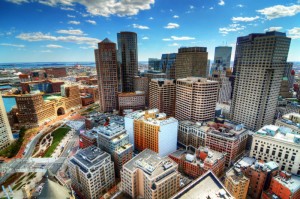
In addition to its strategic waterfront location, Boston has also grown into a technological, educational, and health care mecca for local, regional, national, and international businesses. As the capital of Massachusetts, there are civil and political employment opportunities, both local and state. At the crux of all business, is independent business. Boston is the place for entrepreneurs to build deep roots and showcase their talents and passions by providing products and services to those who live and work in the Boston area. There are over 800 restaurants in Boston and less than 40 of them are considered “fast food”. That means restaurants for lunch, after work get-togethers, dinner, and weekend food and entertainment venues are abundant for foodies and wait staff.
There are many characteristics that make working in Boston so special.
First and foremost are the people. Boston is a melting pot. Hardworking, determined settlers from across the globe came to Boston over the years in order to build a better life. Each generation has built on that foundation while growing Boston into a progressive leader of commerce in the world.
Boston is a city of education.
The students of Boston’s most prestigious colleges and universities make Boston one of the youngest metropolitan areas in the country. Working in Boston means your business is patronized by the students, faculty and administrators. As a resident or visitor to Boston you can enjoy sports, theatre, art, community education and much more as a result of the community outreach programs sponsored by the 53 colleges and universities in the Boston area. Nine out of 27 of Boston’s public schools were honored with the bronze, silver, or gold rankings by U.S. News & World Report thanks to their educators and school district administration. The first public school in the United States opened in 1635, Boston Latin, and is still open today.
Boston is a city of firsts.
- First College (Harvard, 1636)
- First Subway (1897)
- First Public Park (1639)
- First Organ Transplant (Kidney, 1954)
- First City Police Department (1837)
- First Dunkin Donut (1950)
- First Newspaper (Boston Globe, 1704)
- First Microwave Oven (1947)
- First Ball Park (Fenway, 1912)
- In light of the recent terrorist attacks in Boston, our first responders also receive our accolades.
All these, and many more firsts, reinforce why it is so good to work in Boston. For more firsts in Boston click here.
Sports in Boston are a source of employment and after work recreation.
The Celtics, Red Sox, Bruins, and Patriots mean sports lovers have the ability to cheer for their favorite team during every season. Dating as far back as opening day at Fenway, attending Opening Days and special games have even been the reason many employees have called in “sick”. There is nothing better than relaxing and supporting your favorite team! The staff who support the stadiums, teams, and concessions give our athletes and the fans a unique and unprecedented experience. (As do our renowned craft beer breweries.)
Boston Employment An All-Time High
There are over 3.4 million people working in Boston. Those who are currently working or look to work in Boston, are encouraged by this summary on the City of Boston’s website. “With a strong economy, safe streets and a diverse workforce, Boston is poised for continued success in fostering new enterprise throughout the city. Increasingly, companies are discovering new market opportunities in urban neighborhoods where density of purchasing power, investment in new infrastructure and access to employees form a framework for growth.”
We love working in Boston, the people, the resources, the transportation, the culture, the geography and so much more gives those who work in Boston a huge advantage and quality of life over America’s other big cities!
by Billy Sweet | Jan 6, 2015 | Winter Chimney
Around this time of year, the chimney often goes unnoticed. With everyone headed inside the escape the chilly winter weather, the chimney is left in the cold to fend for itself. While the robust brick structure may seem able to withstand any weather, masonry chimneys can actually suffer irreparable damage during the winter months. Fortunately, there are some measures that can be taken now to prevent more damage in the future.
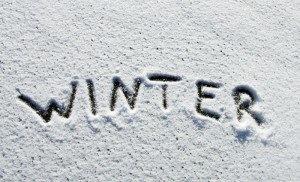
Masonry chimneys are chimneys constructed using masonry materials, which include brick, mortar, concrete and stone. All of these materials, aside from stone, have a very porous nature, which means they easily absorb any water that touches them. Similar in function to a sponge, the bricks and other materials can soak up moisture until they reach complete saturations. While the absorption of water does little damage by itself, the trouble begins when the temperature drops below freezing. In sub-freezing temperatures, water begins a freeze and thaw cycle in which it continuously expands and contracts as it freezes and melts, respectively. When the water inside the masonry materials starts this cycle, the materials also experience that same shrinking and swelling movement. Over time, this motion degrades the strength of the materials. The first signs of a weakened chimney include cracked mortar or missing bricks, but eventually the entire structure could fall. To prevent this, a chimney specialist can patch the mortar by tuckpointing and apply a certain permeable sealant to the outside of the chimney to prevent water from entering the structure.
The other winter problem that occurs with the chimney also revolves around water damage. The warmth of the chimney can melt snow and ice at the top of the chimney, permitting water to leak inside. If the flue lining is made of metal, the water can rust out the lining, leading to cracks and holes. This break in the lining exposes the combustibles in the house to the heat of the fire, and it allows the toxic fumes to leak back into the home. Potential hazards of this include house fires and carbon monoxide poisoning. In addition, the water can rust out the damper, which may prevent proper ventilation of the fumes. Water damage may encroach further, as well, which would be evident by the presence of water stains on the walls and ceiling surrounding the fireplace. A chimney specialist can stop this damage from happening by repairing or replacing the chimney crown, if one is present, and installing a proper chimney cap to stop water from entering the chimney.
Prevention is key to avoiding these costly damages, so take the extra time to ask your chimney sweep or inspector about protecting your masonry chimney. For a professional consultation in the Boston or Portland areas, contact Billy Sweet Chimney Sweep.
by Billy Sweet | Dec 31, 2014 | Neglecting Chimney Maintenance
At first glance, chimneys seem very robust. They live outside all year, exposed to the elements, and can withstand hundreds of degrees worth of heat, fire after fire. Despite all of this, however, chimneys do need some regular care to keep up with these high demands. Industry experts strongly recommend having the chimney swept and inspected at least once every year and for good reason. Failure to keep up with chimney maintenance can have some devastating consequences.
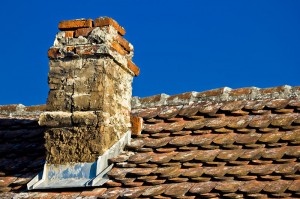
For wood burning fireplaces and stoves, the chimney will contain a buildup of a material called creosote. This black, tarry material clings to the surface of the chimney and can build up to the point of blocking air flow. Creosote is also highly flammable and is the cause of many destructive chimney fires. It burns at a much higher temperature than wood or gas, and once burning, it can be very difficult to extinguish. To keep your home and family safe, having a chimney sweep remove the creosote is imperative.
Debris found in the chimney can also take the form of an obstruction that reduces or blocks the flow of air. A common obstruction in the chimney is an animal and its nest. Warm chimneys attract small animals like birds, squirrels and raccoons that need a cozy space to wait out the winter. Unfortunately, this means trouble for the home owner. When the toxic fumes from the fire cannot escape through the chimney, they end up in the house. Not only does the creosote and soot leave messy, black residue on walls and furniture, but this lack of ventilation can actually be dangerous. Carbon monoxide, a product of combustion, can cause death when inhaled in high enough concentrations. It also has no color, smell, or taste, making it impossible to detect without relying on a special detector. To avoid the dangers of carbon monoxide from the fireplace, have a chimney sweep out every year.
Chimney inspections should also be done every year. The inspector examines the chimney from inside the house and from the roof to determine its structural soundness. A common problem that inspectors uncover is water damage. In a masonry chimney, water can enter the brick and mortar and cause cracking or even collapse. In all types of chimneys, water can also cause damage to the interior. If the flue lining is made of metal, water exposure can lead to rusted cracks or holes, which then exposes the house to further water damage, carbon monoxide leaks, and potential house fires. A simple inspection could determine if the chimney cap needs to be replaced, which can prevent these problems most of the time.
All in all, failure to keep up with chimney maintenance could cost you money in repairs, your house, and even your life. Instead of risking it, just call to schedule your annual sweep and inspection today. If you live near Boston, Massachusetts or Portland, Maine, contact Billy Sweet Chimney Sweep to speak with a professional.
by Billy Sweet | Nov 30, 2014 | Full Chimney Rebuild
All parts of a home will eventually need an upgrade because time wears down everything. Older homes, which are very common all along the east coast, generally need these updates sooner rather than later. Everything from contemporary style updates to energy savings updates can help bring an older home into the modern world. For homeowners looking ahead to the chilly winter, an update to the chimney or fireplace may be next on the to-do list.
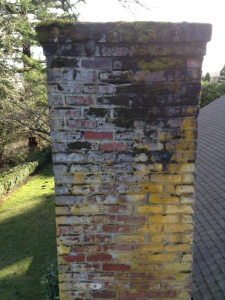
Chimneys can require a rebuild for a number of reasons, but the most common issue involves a partial or complete collapse of the chimney. Collapse occurs when the structure of the chimney has degraded, often due to long term exposure to harsh weather. Masonry chimneys, in particular, can suffer negative effects from weather. The materials used to construct a masonry chimney – brick, concrete, and mortar – all have a very porous nature, meaning they readily absorb water. Absorbing water alone does not have damaging consequences, but when the temperatures drop below freezing, the issues begin. In freezing weather, water undergoes a freeze and thaw cycle in which it continually expands and contracts. The bricks and concrete saturated with water also contract and expand with the water inside, and this results in degraded materials over time. First, the mortar will crack and fall from between the bricks, and the concrete will split. Then, the bricks come loose, and the entire structure loses its integrity. Eventually, the chimney could collapse.
Other problems that may result in a chimney rebuild include earthquakes and chimney fires. Earthquakes can cause irreparable structural damage to the chimney, and older chimneys usually do not have the stabilizing steel rebar that modern chimneys use to protect against this type of impact damage. The rebuilt masonry chimney would contain this rebar to stabilize the structure in case of future earthquakes. Chimney fires can also necessitate a rebuild, especially with older masonry chimneys. These chimneys often utilized clay or mortar chimney liners, which crack and split under the heat of the fire. This destroys the protection provided by the chimney liner and undermines the strength of the structure overall.
While a full chimney rebuild may not seem ideal from the homeowner’s point of view, if only for the cost of it, this process could mean the difference between a safe fireplace and a hazardous one. In order to make the rebuild process easy and effective, a chimney expert must be employed. This ensures proper and safe construction that meets safety codes. If you live in the area of Boston or North Shore, Massachusetts or near Portland, Maine, you can get in contact with Billy Sweet Chimney Sweep for a rebuild inspection and consultation.





